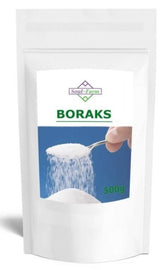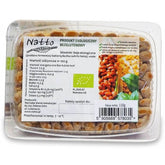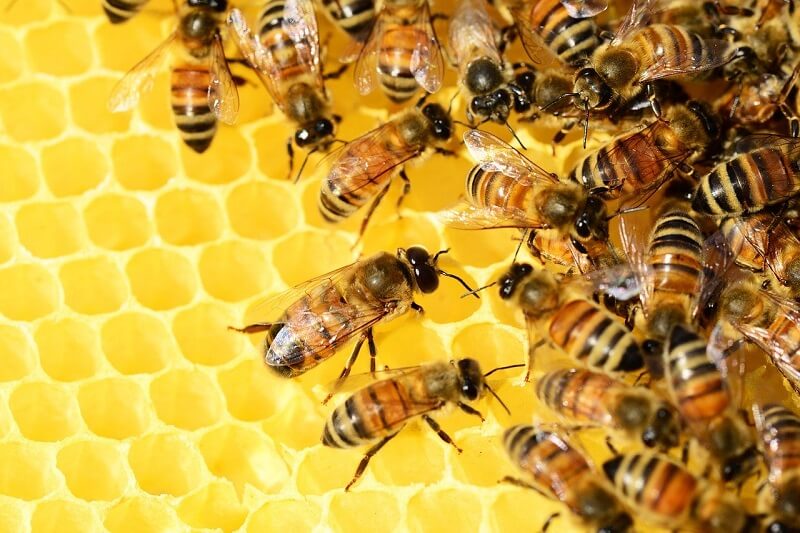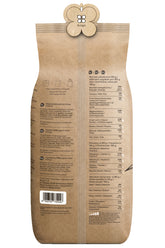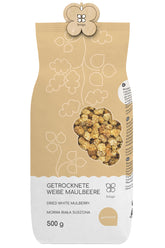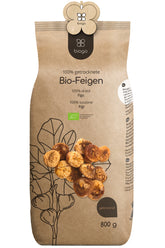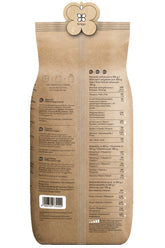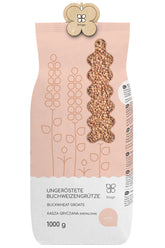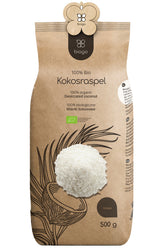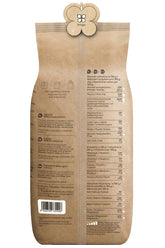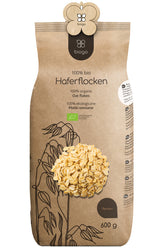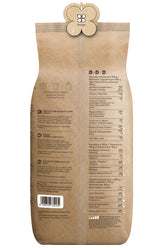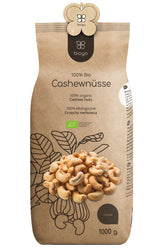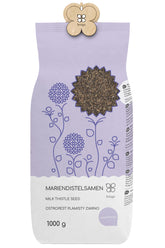Propolis and bee pollen - application and properties
CONTENTS
- What is bee pollen?
- Bee pollen - the nutrient content
- Bee pollen - properties
- Bee pollen - contraindications
- Propolis – what is it?
- Propolis - Nutrients
- How do you prepare propolis?
- Propolis - Properties and Application
- Propolis - Contraindications
- Summary
The health-promoting properties of natural honey are well-known. Thanks to the specific production process of bees, honey contains many nutritional values beneficial to our health. However, bees produce more than just honey. In this article, we will look at other, equally valuable products of these unusual insects. We are talking about propolis and bee pollen. There is no doubt that they are much less well-known than honey, but is this true? What are they used for and what are the benefits of their use? We invite you to read on.
What is bee pollen?
Bee pollen is nothing more than flower pollen collected by bees but not yet processed into honey. This product consists of the pollen of the plants from which they have just chosen to collect it. It is partially already processed by bees, which gives it additional nutritional value. Pollen is formed into small spheres, each consisting of approximately 100,000 pollen grains from various plants (including medicinal ones). This is a great advantage, as it combines the medicinal properties of bee enzymes with the active ingredients of the plants from which it was obtained. Flower pollen is not as often counterfeited as honey. Real bee pollen has an intense, distinctive odor. Furthermore, its grains are irregular and usually vary in color. This is because practically every plant has a slightly different pollen color. Also, keep in mind that pollen is not as well protected from spoilage as honey. As such, it has virtually no mechanism for long-term storage.
Bee pollen - the nutrient content
The invaluable nutritional value of bee pollen stems from its extremely rich chemical composition, as over 250 different compounds have been identified in it. It also contains simple sugars, fatty acids, and over 30 amino acids, which make up almost 12% of the pollen mass. It's impossible not to mention the minerals and vitamins. These include phosphorus, potassium, sodium, and zinc. It also contains B vitamins, as well as vitamins A, C, PP, and D. Pollen contains phospholipids such as lecithin. Phospholipids inhibit the deposition of lipids in hepatocytes, thus protecting the body from hepatosis (a dysfunction of the liver) and, consequently, from the development of atherosclerosis. Flower pollen is also a source of phytoncides—substances with bactericidal, fungal, and protozoal effects—essential oils, hormones, antibiotics, and enzymes. The complete composition of bee pollen is not yet fully known; new compounds are constantly being discovered.
Bee pollen - properties
Bee pollen has long been of interest to researchers. Studies have demonstrated its positive effects on human health. Due to its high energy density, it is certainly a very good source of energy. It stimulates appetite and regulates metabolism. It can reduce fatigue, tonic the entire body, and significantly contribute to weight loss, especially in overweight people. Thanks to its high content of plant-derived substances – phospholipids – it has detoxifying properties. This is especially important for maintaining liver and kidney health. It protects these organs from the harmful effects of toxic substances, including alcohol. This does not mean that it eliminates their negative health effects. It has antidepressant, antiallergic, and antibiotic properties. First of all, it reduces nervousness and irritability, supports the treatment of depression, and increases concentration. Its effectiveness in combating colds cannot be overestimated. It owes this property to its powerful antibacterial and antiviral properties. Allergy sufferers will also appreciate its effects. It can support the treatment of hay fever, asthma, and shortness of breath caused by an allergic reaction. Its anti-atherosclerotic properties can also be included among its properties. It improves digestion, and you can consider using it for severe constipation or other digestive system problems. Pollen extracts themselves can support insulin secretion and sensitize cells to its effects. This is of great importance in the prevention of type 2 diabetes. It is worth knowing that pollen has an effect that can help the body prevent miscarriage. It can also help increase fertility.
Bee pollen - contraindications
Bee pollen has virtually no strong contraindications for use. Of course, allergy sufferers who are allergic to individual plants and their pollen should be cautious. The problem with pollen is that we usually don't know 100% which plants it comes from. Of course, it's still worth using in moderation. It's a product with a high nutrient density and active ingredients.
Propolis – what is it?
Propolis is nothing more than bee glue. It's a thick, sticky substance used by bees to line the inside of the hive, sealing and strengthening its structure. Propolis also protects the hive from pathogens—bacteria, fungi, and viruses. This product is made by combining bee secretions with tree or flower resins. Depending on the type of plant used for its production, its color can vary greatly, from very light yellows to dark brown. Bee glue doesn't dissolve in water, but only in organic solvents, including alcohol.
Propolis - Nutrients
The composition of propolis varies depending on the season, the ingredients used in its production, the bees, and the temperature. However, its main ingredients include plant resins, waxes, polyphenols, and pollen. It also contains many vitamins and minerals, as well as tannins, polysaccharides, essential oils, and mechanical admixtures. Nearly 300 active ingredients with different effects have been discovered in it, and the number is constantly growing. In this respect, it is a truly phenomenal product.
How do you prepare propolis?
As mentioned above, propolis is only soluble in organic solvents. For this purpose, we need concentrated ethyl alcohol. We will also need about 50 grams of ground propolis, as it better reflects the nutrients in this form. Propolis is infused with 350 milliliters of ethyl alcohol and 150 milliliters of lukewarm, boiled water. Mix everything together and close the container tightly. Wait about three weeks until the solution is absorbed, stirring gently every day. The resulting tincture is filtered through cotton wool to obtain a uniform solution. It should be mentioned here that one of the most widely used properties of this tincture is its antifungal effect. However, it also works well in treating staphylococcal infections and other bacteria. It can be used externally or as an additive to tea or other beverages. However, remember not to overdo it with the amount. It is still highly concentrated alcohol.
Propolis - Properties and Application
One of propolis's best-known activities is its activity against staphylococci, dermatophytes, streptococci, and yeast-like fungi. It also acts against bacteria and fungi, significantly contributing to reducing their activity. It also exhibits properties that accelerate the regeneration of damaged tissue and the scarring process. It can increase the body's resistance and the strength of the immune response. Its powerful anti-free radical effect has also been noted. In addition, it reduces oxidative stress in cells. Thanks to this property, it reduces the likelihood of certain diseases in the future. We're talking about cancer, but also atherosclerosis and diseases of the cardiovascular system. It inhibits inflammation in the mouth and throat, stimulates more efficient blood circulation, improves vitality, and reduces fatigue. It is used in cosmetics. Its beneficial effects on our skin are appreciated. It relieves inflammation, seborrhea, and reduces post-acne scarring. By reducing inflammation, it is also used in the supportive treatment of joint inflammation and rheumatism.
Propolis - Contraindications
Like bee pollen, propolis can cause allergies. Before use, make sure you are not allergic to other bee products such as honey or bee pollen. When applied topically, some people may experience skin itching, swelling, and redness. However, when used internally, it may cause swelling of the mucous membranes or a drop in blood pressure. However, it is possible to test propolis before use. To do this, rub a small amount into the inside of your arm, near the elbow joint. Observation will determine if you are experiencing an allergic reaction.
Summary
Propolis and bee pollen are becoming increasingly popular, and it's no wonder. They offer a range of health-promoting properties and are relatively safe products. However, we should remember to use them wisely. If we are unsure about their use and possible side effects, it is a good idea to consult a doctor.
THE PUBLISHER'S CHOICE
Almonds 1 kg BIOGO
- €11,69
€13,75- €11,69
- Unit price
- / per
Walnuts 800 g BIOGO
- €8,65
€10,18- €8,65
- Unit price
- / per
Dried organic mango 400 g BIOGO
- €10,99
- €10,99
- Unit price
- / per
Dried White Mulberries 500 g ORGANIC
- €5,84
€6,87- €5,84
- Unit price
- / per
Dried organic figs 800 g BIOGO
- €30,12
- €30,12
- Unit price
- / per
Unpeeled buckwheat groats 1 kg BIOGO
- €2,81
€3,31- €2,81
- Unit price
- / per
Organic coconut flakes 500 g BIOGO
- €10,07
- €10,07
- Unit price
- / per
Organic oat flakes 600 g BIOGO
- €3,77
- €3,77
- Unit price
- / per
Organic cashew nuts 1 kg BIOGO
- €19,99
- €19,99
- Unit price
- / per
Milk thistle seeds 1 kg BIOGO
- €3,99
- €3,99
- Unit price
- / per






